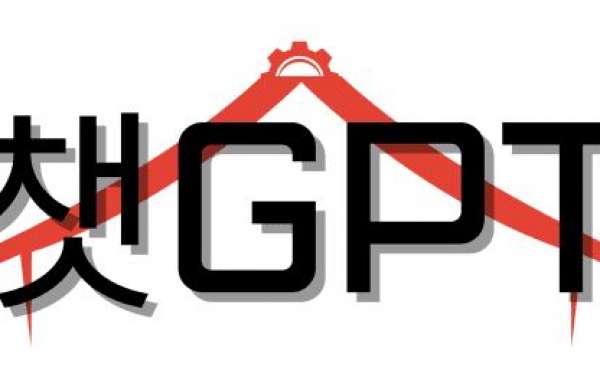Understanding ChatGPT Korea
A. What is ChatGPT Korea?
ChatGPT Korea is an adaptation of OpenAI's renowned ChatGPT, a powerful language model that uses machine learning techniques to generate human-like text based on input provided by users. This version has been specifically tailored for Korean speakers, enabling it to handle the intricacies of the Korean language, including its unique syntax, grammar, and cultural context.
B. The Importance of Localized AI Solutions
In a world where English dominates many technological fields, the development of localized AI solutions like ChatGPT Korea is essential. Korean speakers often face challenges when using general AI tools that may not fully grasp the nuances of their language. By focusing on the Korean language, ChatGPT Korea enhances communication and makes AI more accessible and relevant to its users.
2. Technological Foundation
A. Natural Language Processing (NLP)
At the heart of ChatGPT Korea lies Natural Language Processing (NLP), a branch of AI focused on enabling machines to understand and interpret human language. NLP is crucial for effectively handling the Korean language, which has distinct characteristics that differentiate it from English and other languages.
For example, Korean employs various levels of politeness that influence word choice and sentence structure. ChatGPT Korea is equipped to recognize these nuances, allowing it to respond appropriately depending on the context. This adaptability makes it a valuable tool for both casual conversations and professional interactions.
B. Deep Learning Techniques
ChatGPT Korea utilizes deep learning techniques, particularly transformer models, which are pivotal for understanding context and generating coherent responses. These models analyze the relationships between words and phrases, enabling the AI to produce more accurate and context-aware replies. The technology allows for a conversational flow that feels natural and engaging, similar to how players interact with a well-designed game.
3. Key Features of ChatGPT Korea
A. Fluent Korean Communication
One of the standout features of ChatGPT Korea is its ability to communicate fluently in Korean. The AI has been trained on extensive datasets of Korean text, ensuring it understands various sentence structures, vocabulary, and idiomatic expressions. As a result, users can expect natural, accurate responses that align with their communication style.
B. Versatile Applications
ChatGPT Korea offers versatility across various applications:
Customer Service: Businesses can leverage ChatGPT Korea to automate customer support, allowing the AI to handle inquiries, provide information, and assist with transactions in fluent Korean. This can enhance customer satisfaction and reduce operational costs.
Education: ChatGPT Korea serves as an educational resource, assisting students with language learning, answering questions across subjects, and offering study support. Its fluency in Korean makes it an ideal tool for both students and educators.
Content Creation: For writers and marketers, ChatGPT Korea can generate coherent and contextually appropriate text, making it an excellent resource for drafting articles, social media posts, and marketing content.
C. Real-Time Interaction
The capability for real-time interaction is a significant advantage of ChatGPT Korea. Users can engage in conversations without delays, allowing for a seamless exchange of ideas. This is particularly useful in customer service scenarios where timely responses can make a substantial difference in user experience.
4. Benefits of ChatGPT Korea
A. Bridging Language Gaps
ChatGPT Korea addresses the language gap that many Korean speakers face when interacting with global AI solutions. By providing a tool that understands Korean language and culture, users can communicate more effectively without the frustrations associated with translation errors or misinterpretations.
B. Empowering Businesses
For businesses in Korea, adopting ChatGPT Korea can lead to significant improvements in efficiency and customer service. By automating routine inquiries and tasks, companies can free up valuable resources and focus on higher-level strategic initiatives. This can be especially beneficial for small and medium-sized enterprises (SMEs) that may lack the manpower for extensive customer support.
C. Enhancing User Experience
With its contextual awareness and cultural sensitivity, ChatGPT Korea enhances user experience significantly. Users feel more comfortable engaging with an AI that respects their language and culture, leading to more productive and satisfying interactions. This fosters a sense of trust and rapport, which is crucial in any communication, be it personal or professional.
5. Challenges and Ethical Considerations
A. Data Privacy and Security
As with any AI application, data privacy and security are paramount concerns. ChatGPT Korea must handle user information responsibly, especially in sectors like customer service and education. Users should be cautious about sharing sensitive information, and businesses must implement strong data protection measures to ensure user data is secure.
B. Mitigating Bias in AI
AI models can unintentionally reflect biases present in their training data. It is essential for developers to actively monitor and refine the training datasets used for ChatGPT Korea to minimize potential biases. This involves continuous updates and improvements to ensure the AI remains fair and inclusive in its responses.
C. Adhering to AI Regulations
As the landscape of AI regulation continues to evolve, businesses utilizing ChatGPT Korea must stay informed about relevant laws and guidelines. Compliance with data protection regulations and ethical standards is critical for maintaining user trust and ensuring the responsible use of AI technology.
6. The Future of ChatGPT Korea
The future of ChatGPT Korea looks promising, with ongoing developments expected to enhance its capabilities. As technology evolves, we can anticipate improvements in AI-driven communication, including more sophisticated language processing and the incorporation of additional features, such as voice recognition.
Moreover, the adoption of ChatGPT Korea is likely to drive further advancements in AI within Korea. As businesses and individuals recognize the benefits of localized AI solutions, we can expect an increase in AI-powered applications across various sectors, enhancing overall productivity and user engagement.
Conclusion
ChatGPT Korea represents a significant leap forward in AI-driven communication for Korean speakers. By combining advanced NLP, deep learning techniques, and cultural contextualization, it delivers a tailored, intuitive experience that addresses the unique needs of its users. Whether in customer service, education, or content creation, ChatGPT Korea enhances communication and fosters meaningful interactions.




